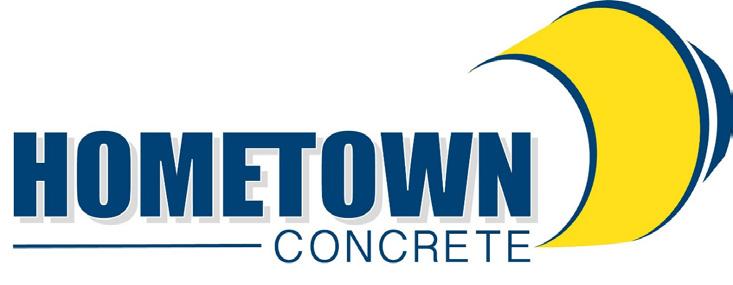
3 minute read
Covington commission increases short-term rental penalties
BY NATHAN GRANGER | LINK nky REPORTER
The Covington City Commission unanimously voted to increase penalties for short-term rental property owners who have failed to obtain licensing from the city.
The vote, which occurred during the March 28 meeting, is the end of a months-long process of investigation, deliberation and revision of measures related to short-term rentals.
More commonly referred to as Airbnbs, after the web service where such properties are advertised, short-term rental properties are private residences that owners rent out for short stays – typically fewer than 30 days.
Covington is a popular destination for short-term rentals due to its proximity to the riverfront. Short-term renters will frequently find an inexpensive room in Covington so that they can then travel across the river for big events, like sports games, concerts and conventions.
The ordinance marks the latest in a series of escalating penalties for short-term rental landlords who have failed to obtain proper licensing from the city. It aims to prevent delinquent landlords from applying for short-term rental licenses for a year after being notified of their violation. Other penalties were already in place, including fines of up to $1,000 per day of operating without proper licensing, tax audits, and liens and foreclosures in extreme cases.
Property owners who had already obtained proper licensing can still operate their properties legally but cannot apply for new licenses for new properties until the freeze is lifted. The moratorium ends in June.
The commission had initially planned on voting on the penalty during the legislative meeting on Feb. 28 but decided not to vote at the advice of City Solicitor David Davidson. Davidson said he believed that the original text of the ordinance lacked enough due process for violators and suggested the commission amend the ordinance to allow people to defend themselves before the city’s code enforcement board before being barred from applying for new licenses. This had the effect of pushing the vote back two legislative sessions.
Short-term property owners attended the meetings to share how the new penalties could negatively impact them.
Many expressed the hope for a provisional license for landlords who had begun the process of licensing but failed to complete the process before the city instituted the moratorium.
Despite the statements from property owners, at least two community organizations have come out in favor of increased regulations for delinquent landlords.
“We became concerned that there could be a proliferation of short-term rentals, which could erode the fabric of the community and its unique character,” said Patrick Hughes, the president of the Historic Licking Riverside Civic Association, in a phone call with LINK nky last week. “These [neighborhoods] are where people live. I don’t think it’s appropriate to have shortterm rentals, which are the equivalent of a micro hotel, in your neighborhood.”
Hughes said that he’s not against shortterm rentals universally — he even disclosed that the law firm he works for rep- resents a short-term rental owner — but he’s in favor of punitive measures like the license application suspension. He also favors barring short-term rentals from operating in primarily residential areas.
“For the first time since the ’70s, there’s young families moving back into our neighborhood with young children,” Hughes said. “You know, you’d like to have that sense of safety, and it’s fine when people come for their weddings or a picnic or the tour; that’s all great. When people are coming in and having parties, are using it as a base camp for sports events or concerts, it begins to take on the character of an entertainment district.”
To that end, he favors restricting shortterm rentals to areas already zoned for entertainment.
Brandon Galeas, the president of Mutter Gottes, or Mother of God, Neighborhood Association, shares similar sentiments.
Galeas admits that short-term rentals are often profitable for cities and local landlords who reside in the area.
The problem is that over-saturation of short-term rentals in a neighborhood can fray the sense of community that comes from having long-term neighbors who share common interests.
“Honestly, [you] don’t really interact with your neighbors that are short-term renters,” Galeas said. “And so it kind of makes you feel like you’re on an island if you’re surrounded by short-term rental properties.”
He said people are concerned about prop- erties being purchased by non-local landlords for short-term rentals and then falling into disrepair.

But Galeas admitted that the process could be better, especially when it came to obtaining conditional zoning from the architectural board.
“It’s not clear,” Galeas said. “And that’s a big issue for the people who operate the properties. Like, the rules aren’t clear. They have to get conditional approval, but they’re not told what kind of density the city allows or what the density currently is. Unless they ask somebody, they don’t know the process to get approved.”
After the vote, Davidson addressed the possibility for a provisional license, saying it wouldn’t currently be possible to issue provisional licenses without rewriting city ordinance. What’s more, provisional licensure would likely cause problems for zoning, he claimed, as anyone who wished to legally rent out space on a short-term basis had to first obtain conditional licensing. Provisional licensing could potentially side-step that safeguard if implemented poorly.
At the end of the public comment section, Mayor Joe Meyer announced that public hearings would take place within the next two weeks, where anyone from the community could come and engage with commissioners in public dialogue on the issue. He also encouraged attendees to sign up for the city’s email announcements.
An exact date, time and place for the public hearing was not determined at the meeting.









